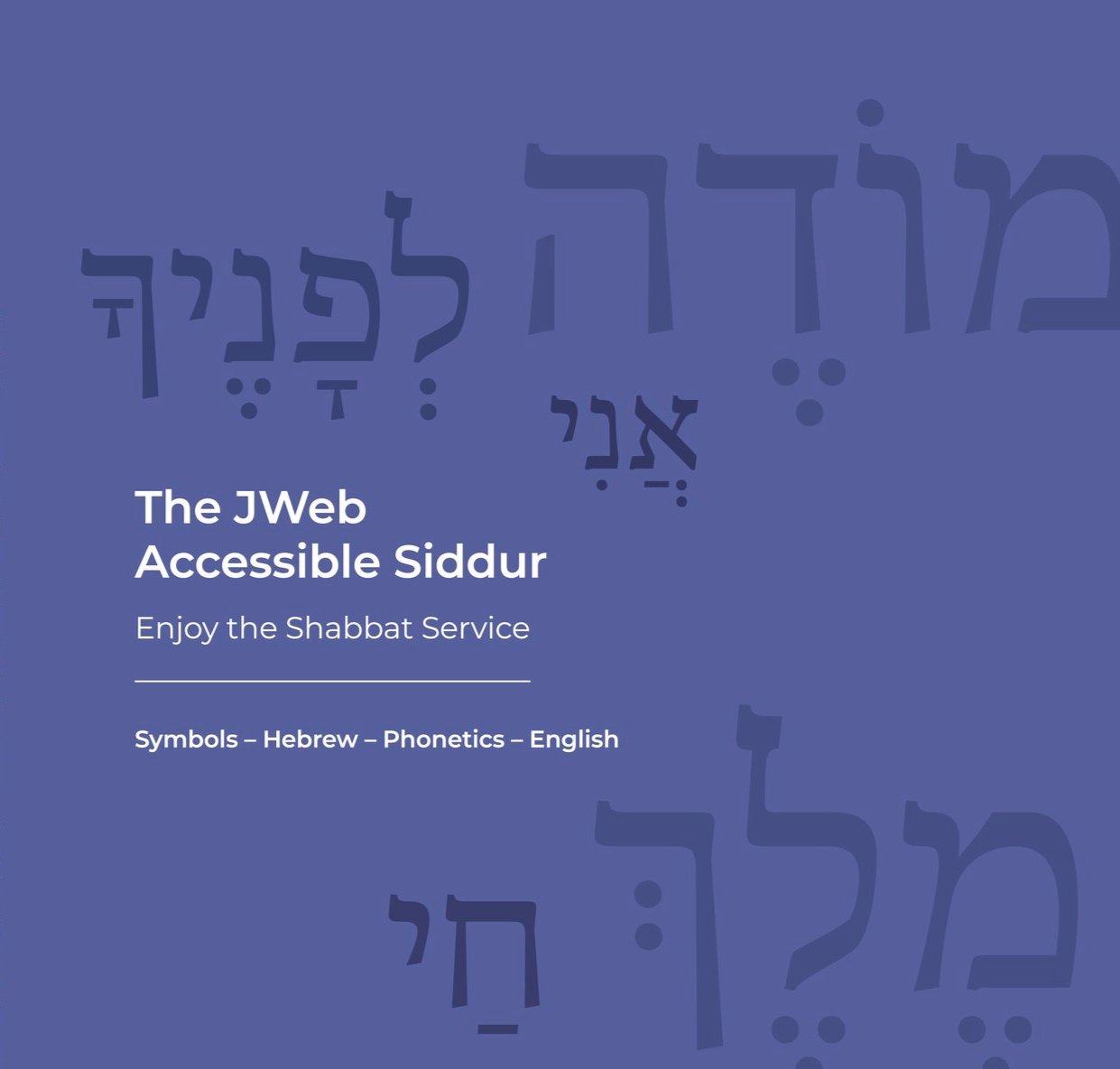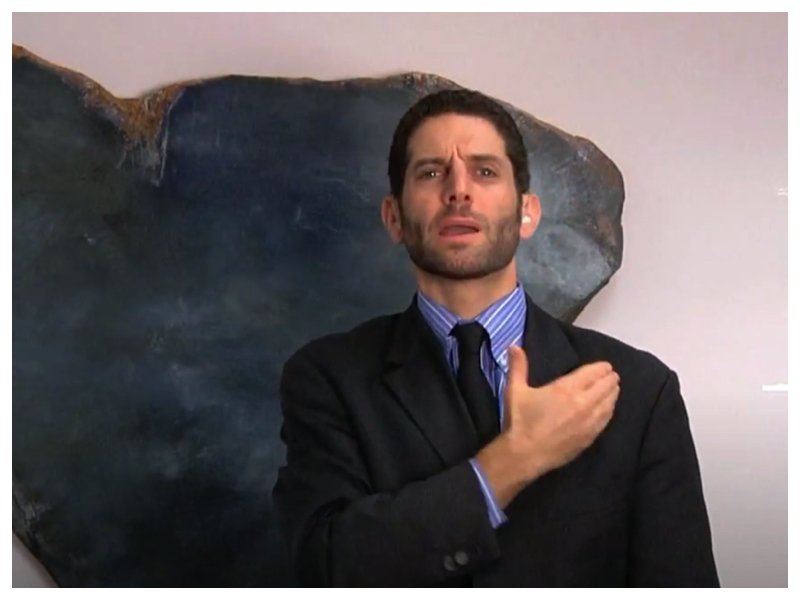
JWeb Reform Judaism Accessible Siddur
The Jweb Accessible Siddur, compiled by Deborah Gundle and Anna Perceval, has been produced with the support of Finchley Reform Synagogue, with a foreword from Rabbi Miriam Berger. You can download it for free below or purchase A4 hardback copies on Amazon.
“To be a real community doesn’t mean attempting to make everyone conform to the same way of doing things it means rising to the challenge set by the concept “Kol Yisrael arevim zeh ba zeh - all Israel are responsible for each other.” How do we demonstrate this responsibility as far as creating prayer spaces, minyanim? We have to ensure that we are creating opportunities for everyone in our congregations to access prayer in the way most appropriate for them and yet with the creation of such a service comes the responsibility to accompany people during their prayer.”
You can see the film we made with Finchley Reform Synagogue of a model Shabbat service here.
We have prepared some Service Leaders' sheets for you to use as a visual guide to the order of service. Some congregations laminate these sheets and use a laminated arrow that they can move to show congregants where they are in the service. Have a go yourself!
Congregation Rodeph Sholom have shared their story and resources here: http://shireinu.rodephsholom.org. In particular, do watch their videos on preparations for a service. The resources are for Purim, Passover, Rosh Hashanah and Chanukah but the principles are transferable to Shabbat services.
You can read about Mill Hill Synagogue's Shabbat of Inclusivity and find out about what the Chief Rabbi had to say about this initiative. Take a look at What Being Inclusive Means by Gesher School and Norwood and read 18 Ways to be Inclusive in Synagogue by Mill Hill Shul.
Tamaryn Yartu, Co-Headteacher at Gesher School talks to us about how to uses Siddur Lakol with children and adults with additional needs.
Resources
Gateways provides high quality special education services, expertise and support to enable students with diverse learning needs to succeed in Jewish educational settings and participate meaningfully in Jewish life. Browse and download free Shabbat resources for kids, prepared by Gateways' experienced special education teachers: Shabbat blessings with visual supports, Shabbat file folder activities, and books and social stories for Shabbat.
Jewish Interactive uses educational technology to create accessible Jewish education. The interactive Shabbat programme contains nine digital modules teach the history of Shabbat and the practical aspects of Shabbat, accompanied by blended learning lesson plans and curriculum. It is available in Sephardi, Ashkenazi, Chabad and Hebrew versions.
The Union for Reform Judaism, USA has produced a range of resources for the Disability Inclusion Resource Centre.
Respectability has produced a Faith Inclusion Resources pack including a High Holiday Synagogue Toolkit, Synagogue Inclusion Toolkit and links to Jewish Inclusion Webinars.
The Foundation for people with learning disabilities has produced a toolkit entitled ‘Thinking about Inclusion’.
The Judith Trusts’ Inclusion Handbook is full of ideas and information about why inclusion is important and how to make it happen.
Articles and Blogs
This is an interesting panel discussion on 'Jewish Disability Awareness and Inclusion' led by Rabbi Friedman from Hampstead Garden Suburb United Synagogue with Rabbi Dovid Cohen (YACHAD), Deborah Gundle (JWeb) and Dr Beverly Jacobson (Norwood):
Chabad has some advice for raising awareness and supporting people with disabilities in our communities.
Read Gesher School’s article in the Jewish Chronicle on how synagogues can be more inclusive to children with autism.
The Ruderman-Chabad Inclusion Initiative offers a range of essays and articles on Jewish disability inclusion.
Read this article for real-life inspiration on what inclusion could mean for your congregation.
Rabbi Konigsburg has written extensively on revitalizing synagogues, and this article on ‘Growing a Synagogue’ has some important ideas for all kinds of inclusion.
This is a case-study on an inclusive Purim service with transferable ideas for year-round Shabbat services.
This article focuses on what parents can do to help their child attend services at their synagogue.
Take a look at this video made by Talya who has cerebral palsy, learning disabilities and a severe visual impairment. Talya helps to run the toddler service at her shul, and during lockdown she made a film for her young friends to enjoy at home:
Examples of Inclusion at Synagogues
Finchley Reform Synagogue, London
East London & Essex Liberal Synagogue, London
Temple Shalom, Massachusetts
Congregation Beth El, Washington DC
Music and Song
Find Shabbat morning service prayers at We Sing Together We Stay Together.
Kef Kids have made a short and sweet davening sing-a-long video.
http://www.zemirotdatabase.org is a user-editable online collection of zemirot. You can browse an extensive database of zemirot and liturgy, contribute to the database and add songs.
Download and purchase from a wide collection of Jewish music: https://mostlymusic.com
http://oysongs.com offers a wide selection of contemporary music for services and other Jewish events. Listen to samples, buy mp3s and sheet music.
https://www.transcontinentalmusic.com/ contains a huge collection of traditional and contemporary sheet music to purchase, much of which is now available as pdfs.
There is also a wealth of recordings of synagogue music (traditional and contemporary) available to listen to for free on YouTube and Spotify.










